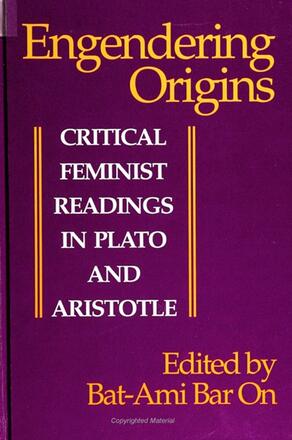
Engendering Origins
Critical Feminist Readings in Plato and Aristotle
Alternative formats available from:
Description
This book introduces feminist voices into the study of Platonic and Aristotelian texts that modern Western philosophy has treated as foundational. The book concerns the extent to which Platonic and Aristotelian texts are (un)redeemably sexist, masculinist, or phallocentric.
Bat-Ami Bar On is Associate Professor of Philosophy and Director of Women's Studies at the State University of New York at Binghamton.
Reviews
"This book presents a lively sense of cutting-edge feminist dialogue on the canonical works. While gender is at the center, the issues range from class structure to dualism to science to morality to epistemology. The Western philosophical tradition, including foundations of dualism and assumptions about neglect of women, is given a thorough reworking here. " — Inez Alfors, State University of New York, College at Oswego
"This book tackles areas of Platonic and Aristotelian philosophy traditionally overlooked by feminists (e. g., Aristotelian science). The contributors provide us with textual evidence for new interpretations of canonical texts, and in doing so they offer a new vision of the canon itself. " — Diane Raymond, Simmons College